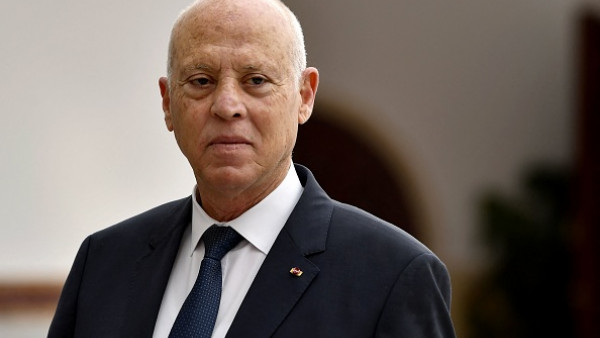Tunisian President Kais Saied on Thursday criticised foreign “interference” after an international backlash over recent arrests of journalists, political commentators, and lawyers, which he defended as lawful.
Civil society in the North African country condemned the arrests as a crackdown on dissent in the country that saw the onset of the Arab Spring.
Saied, who seized sweeping powers in 2021, ordered the foreign ministry to summon ambassadors of several countries and inform them that “Tunisia is an independent state”, in a video released by his office.
The European Union expressed concern this week over the arrests, while the United States said they contradicted the universal rights guaranteed by the country’s constitution.
On Thursday, hundreds, including lawyers and activists, protested in Tunis over the arrests of lawyers Sonia Dahmani and Mehdi Zagrouba during police raids on the national bar association on Saturday and Monday.
Demonstrators gathered near the main courthouse in the capital, where police prevented journalists from entering the building at the prosecutor’s request, as reported by media outlets.
Videos on social media showed black-robed lawyers chanting “Freedom!” and “The police state belongs in the past!”, referring to the era before dictator Zine El Abidine Ben Ali’s ouster in 2011.
Several prominent pundits, journalists, lawyers and civil society figures in Tunisia have been arrested in recent days.
Late Saturday, masked police raided the bar association and detained lawyer and political commentator Dahmani.
That same night, broadcaster Borhen Bssais and political commentator Mourad Zeghidi were also taken into custody.
On Monday, Zagrouba, the second lawyer, was forcibly arrested at the association’s headquarters and was subsequently hospitalised.
Bassem Trifi, head of the Tunisian League for the Defense of Human Rights, had said he and the president of bar, Hatem Meziou, saw “obvious traces of violence and torture” on Zagrouba’s body.
Amnesty International said Thursday “alarming information has emerged indicating that Tunisian lawyer Mehdi Zagrouba was tortured in police custody after his arrest”.
The rights group called on authorities provide Zagrouba “immediate access to medical care” and to open “an independent and impartial investigation into the allegations and bring those responsible to justice”.
Earlier in the day, the interior ministry had denied the allegations, saying they “show a desire to escape from justice” and that it would take legal action against those looking to discredit ongoing legal procedures.
Meziou on Tuesday called for an end to “the abuse of power” and “violence” targeting lawyers.
He described the police raids on the bar association as unlawful and urged Saied to intervene.
But Saied said Thursday that “the bar association is located on Tunisian soil and is not subject to an extraterritorial regime so that anyone can hide there”, referring to the two lawyers who had sought refuge inside before being arrested.
Saied said the arrests took place “in full respect for Tunisian law, which guarantees equality and the right to a fair trial”.
Many of the arrests came under Decree 54, a law ratified by Saied in 2022, which punishes “spreading false information” with up to five years in prison.
Since it came into force, more than 60 journalists, lawyers and opposition figures have been prosecuted, according to the National Union of Tunisian Journalists.
Additionally, around 40 public figures including eight of Saied’s political opponents, former ministers, and businessmen, are currently detained as part of an investigation into a “plot against the state security”.
In January, Human Rights Watch said Tunisia saw “further regression in terms of human rights and the rule of law during 2023 in the absence of genuine checks and balances on President Kais Saied’s power”.
“The government has taken new steps to muzzle free speech, prosecute dissent and crack down on migrants and asylum seekers,” it added.


